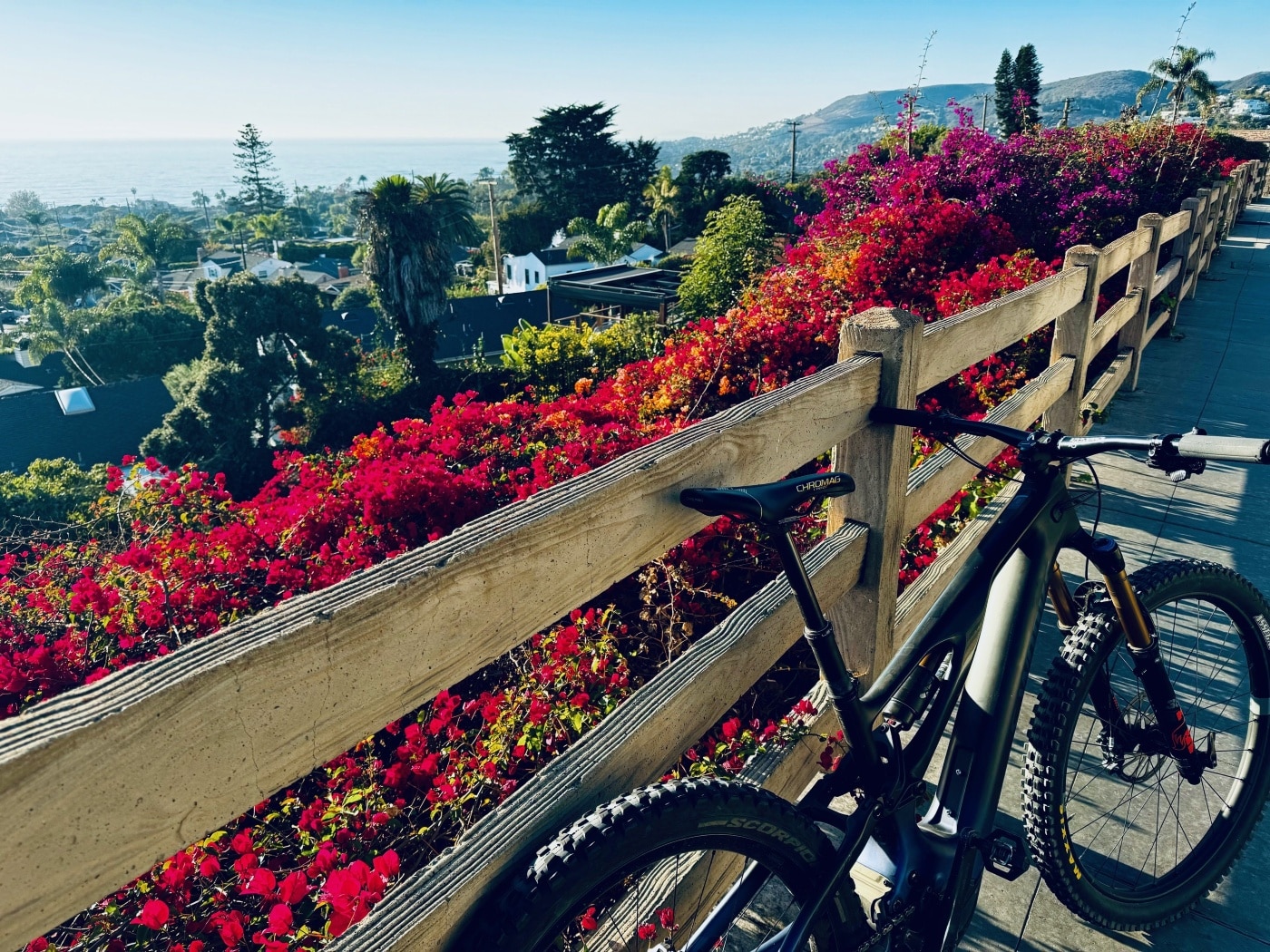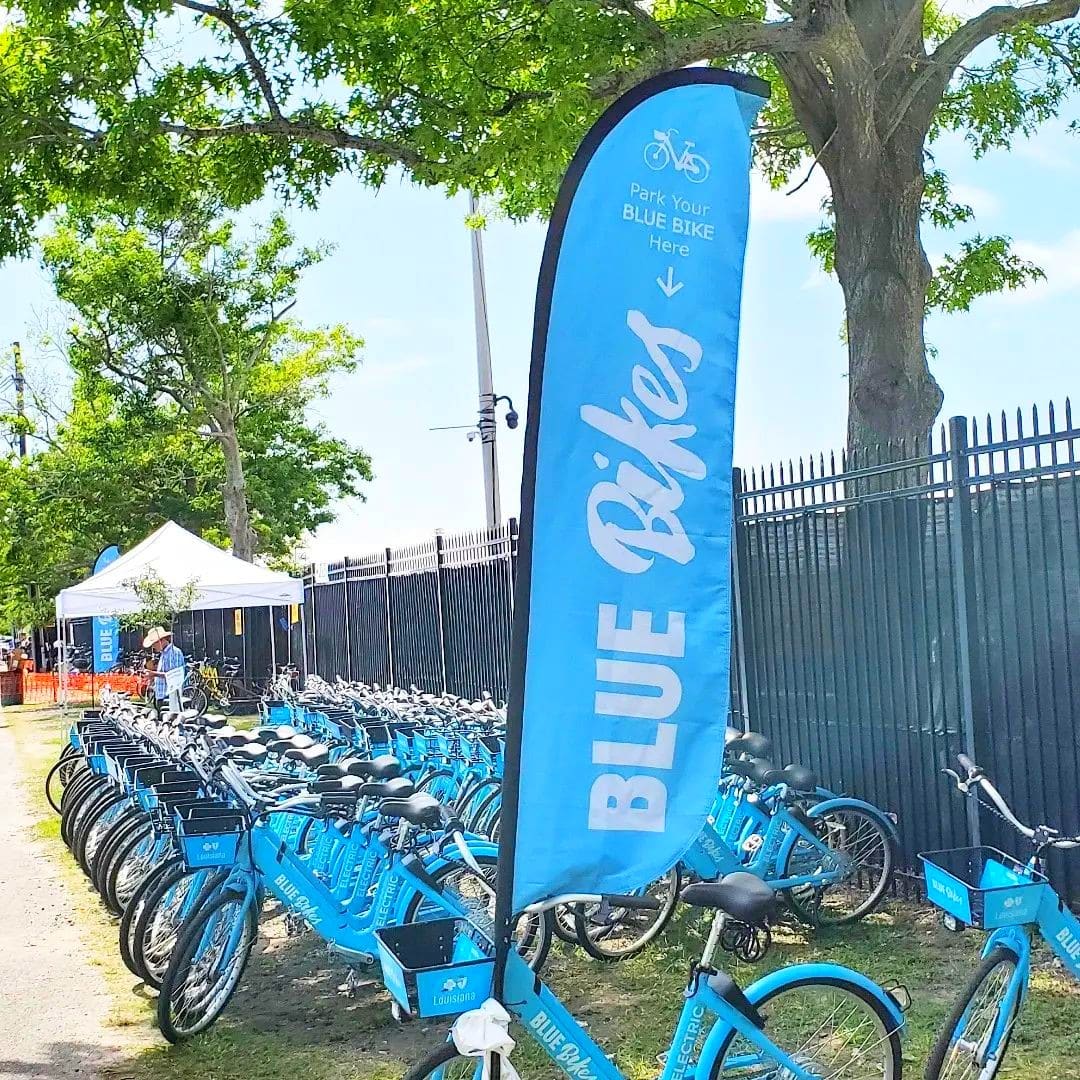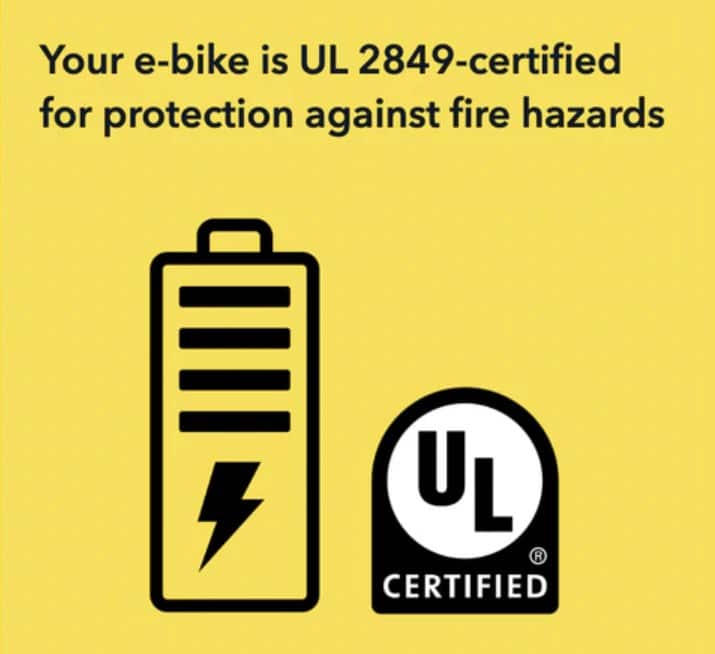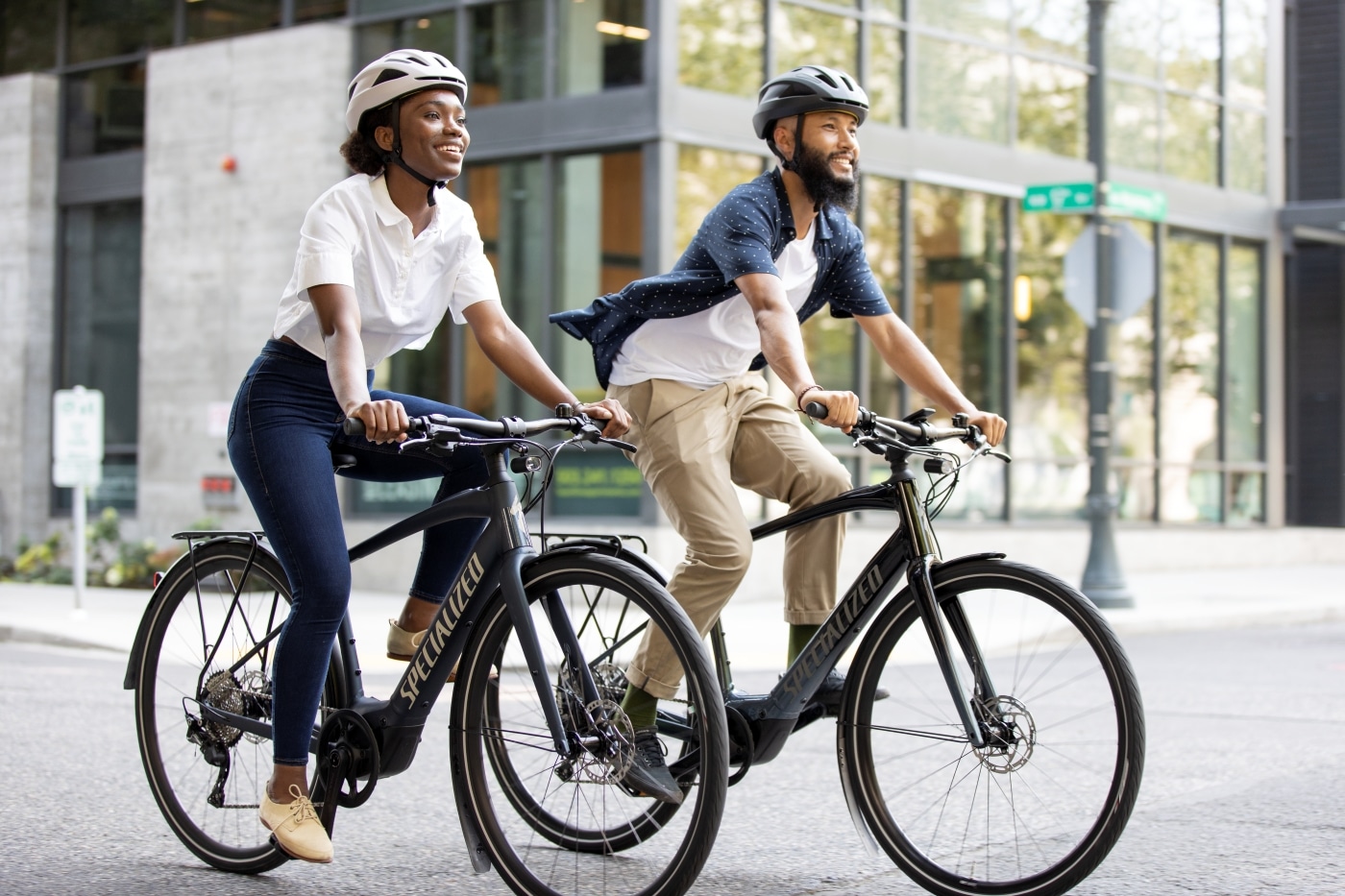E-bikes are popping up everywhere. If you’re riding one in Louisiana or thinking about getting one, you may have questions about the laws, safety tips, and how to pick the right bike. That’s exactly what this post is here for! We’ll break down what you need to know about riding e-bikes in Louisiana, from legal rules to practical considerations, so you can hit the road with confidence.
What is an E-bike?
An electric bike, or e-bike, is a bicycle equipped with a motor and rechargeable battery that provides pedal assistance. It’s designed to amplify your pedaling power, offering adjustable levels of support to make cycling easier—whether you’re tackling headwinds, covering longer distances, or just looking for a more comfortable ride.

E-bikes are now used for all kinds of activities.
My First Ride on an E-Bike—and How It Changed My Perspective
To understand the current state of e-bikes, it’s helpful to know where we’ve been and where we’re heading.
I rode my first e-bike back in 2001 while working at Bayou Bicycles in New Orleans. It was a different time in the biking world—Lance Armstrong was still the Tour de France champion, and New Orleans had maybe a mile or two of bike lanes compared to the 100+ miles we have today.
Back then, we’d heard whispers about e-bikes gaining popularity in Europe, but we hadn’t seen one yet. That changed when a crate arrived at the shop. Inside was this so-called “e-bike” that looked more like an off-road motorcycle than a bicycle. It had a $3,000 price tag and a throttle that could propel you to 30 mph—no pedaling required.
I spent what felt like hours test riding it around the city. The effortless speed was thrilling, but this bike wouldn’t even come close to meeting today’s e-bike standards. Still, it planted a seed of curiosity and was on the front end of a massive wave.
Fast Forward to Now
Recently, I found myself in Southern California looking to ride off-road trails. I stopped by a local shop that rented both analog and e-mountain bikes. My mindset? E-bikes were for weaklings. I considered myself a strong, experienced rider ready to tackle steep trails the old-fashioned way.
As I prepped my analog bike, adjusting the seat height and suspension pressure, the shop employee casually mentioned I could come back and switch to an e-bike if I wanted to go farther and faster. Feeling a little defensive but curious, I asked what percentage of their rentals were electric.
“About 80%,” he said.
Apparently, e-bikes had become mainstream for good reason. They let riders cover more ground without one long, steep climb ruining your day. Determined to prove my grit, I set off on my analog bike.
Over the next 30 minutes, my heart rate flitted in the 170s as I pushed uphill on paved roads just to get to the trails. By the time I reached them, I was already running low on time and energy. I only got some light trail riding in before heading back down the mountain.
When I rolled into the shop, the staff grinned and asked if I was ready to switch to an e-bike.
“Yes, please.”
Enter the Specialized Turbo Levo off-road e-bike. A special thanks to Laguna Beach Cyclery for helping me out.
The next day, I rode nearly as hard uphill but finished the first climb in about 12 minutes. From there, I hit the trails and covered way more ground than I ever could have otherwise.
The only real drawback? The bike’s weight meant I had to turn in earlier on technical parts. I also made sure to slow down around other riders and hikers—blowing past people on a bike with a battery just felt wrong.

My Specialized S-Works Levo rental in Laguna Beach, CA
Louisiana doesn’t have muscle-shredding climbs, but we do have stiff headwinds and other challenges that can make riding tough. Whether it’s commuting without showing up drenched in sweat, hauling groceries or work gear, or bouncing back from an injury, e-bikes can make riding farther and faster more accessible.
All these considerations have changed my view on e-bikes. They’re not an excuse—they’re a tool that can help more people get on bikes and stay on bikes.
A Few E-bike Market Statistics
I handpicked the following stats that are worth sharing.
- Average price: The average price of an e-bike through bike shops is $3,055, compared to $669 for rest of market outlets such as big box and sporting goods stores. Read below about UL certification, which comes with higher priced e-bikes.
- U.S. percentage of bicycles sold: In 2023, e-bikes accounted for nearly five percent of the total U.S. bicycle market. This was a significant increase compared to 2015, when the market share stood at 0.06 percent. E-bikes made up more than one percent of the market for the first time in 2020. However, in 2023, e-bikes accounted for nearly 20% of the dollar sales of bicycles.
- Global market valuation: The global e-bike market size was valued at $50.1 billion in 2024, with projections to grow three times to approximately $148.7 billion by 2032.
- E-bike buyers: One recent industry survey shows that people aged 55 and older represent approximately 80% of e-bike owners and those shoppers interested in buying e-bikes.
- Rising use of e-cargo bikes: E-cargo bikes are becoming increasingly common for urban delivery. Logistics businesses widely use these devices for last-mile deliveries.
- Growth of programs for e-bike sharing: E-bike rental programs are becoming increasingly popular in cities as they help reduce traffic congestion and promote environmentally friendly transportation. In 2023, more than 2 million shared e-bikes are expected to be in use globally. Locally in Louisiana, Blue Krewe’s fleet is comprised entirely of e-bikes. Some local bike shops also rent e-bikes.

Blue Bikes’ rideshare e-bikes at Jazz Fest New Orleans
Understanding Louisiana’s Fundamental E-Bike Laws
In 2021, Louisiana passed legislation to classify and regulate electric bicycles (La R.S. §32:1(24)). Louisiana’s e-bike laws align with the national standards for e-bike regulation. The law defines three distinct classes of e-bikes, restricting power output to 750 watts, and requiring operable pedals on each:
- Class 1: These e-bikes are pedal-assist only, meaning the motor assists the rider when pedaling but does not exceed 20 mph.
- Class 2: These are throttle-assisted e-bikes where the motor can propel the bike without pedaling. The top speed for these bikes is also 20 mph.
- Class 3: These pedal-assist e-bikes have a maximum speed of 28 mph. Riders must be at least 12 years old and wear a helmet to operate a Class 3 e-bike (La R.S. §32:204)). Also, all Class 3 e-bikes shall be equipped with a speedometer that displays the speed in miles per hour. Id.
Not all e-bikes fit into the above categories. For instance, you can purchase an electric wheel or kit to convert your standard bike to an e-bike. These can be effective but may not conform with the approved classes set forth above.
Additionally, e-bikes riders have the same rights and privileges, and are subject to the same duties, as the rider of a standard bicycle. (La R.S. §32:204)).
Can I get a DUI on an E-bike in Louisiana?
While Bike Law does not condone intoxicated riding, it’s important to understand your legal rights. Louisiana law defines bicycles as vehicles (La. R.S. §32:1(92)) but specifically excludes electric-assisted bicycles from the definition of motor vehicles (La. R.S. §32:1(48)). E-bikes are also excluded from the definition of a motorcycle. §32:1(49). To be considered an “e-bike” under Louisiana law, the bicycle must meet one of the three defined classes listed above.
Louisiana’s DUI laws apply to motor vehicles, aircraft, and watercraft operated under the influence. The crux of this law is that the vehicle must be motorized. Since properly classified e-bikes are not considered motor vehicles, riders of these e-bikes are likely exempt from DUI laws. However, if an e-bike does not meet the defined classes, it may be treated as a motor vehicle, leaving the rider subject to DUI charges.
The Louisiana Supreme Court addressed a similar issue in State v. Carr. In that case, the court ruled that traditional bicycles are not subject to DUI laws. However, the ruling did not involve e-bikes, leaving some potential gray areas regarding electric models.
To date, there has been no Louisiana court decision involving an e-bike rider being charged with DUI. Given this ambiguity, it’s advisable to exercise caution. Operating any bicycle, whether traditional or electric, while impaired can be dangerous and lead to legal consequences such as public intoxication charges.
What Lithium-Ion Battery Considerations Should I have with an E-bike?
E-bikes are powered by lithium-ion batteries. While these batteries are efficient, compact, and reliable, they can be dangerous if they’re mishandled or not properly manufactured.
The lithium batteries used in e-bikes are similar to many other common household items such as cell phones, laptops, and electric toothbrushes. In rare cases, these batteries can get hot and even cause fires. In the case of e-bikes, this can happen when the batteries get damaged, are improperly charged, or are incorrectly stored.
The issue of lithium e-bike batteries catching fire has recently been on full display in New York City. In 2023, e-bike battery fires resulted in 268 incidents and 18 deaths. NYC has responded by enacting its own e-bike regulations.
In Louisiana, there are precautions that you can take to minimize any such lithium battery fire risk. First, it is widely accepted that e-bikes from more established brands, such as Specialized, Trek, Electra, and others, are safest. The batteries on these bikes are UL-certified, which assures consumers that an e-bike’s batteries and electrical components meet safety standards. UL stands for Underwriters Laboratories, a global organization that creates standards and tests products to ensure they meet those standards. UL certification is a globally recognized mark of safety, quality, and compliance. This certification means that there is a reduced fire risk and involves evaluating the electrical drive train system, battery, and charger.

An example of a UL Certification badge on an e-bike
Please note that UL 2849 certification focuses specifically on the safety of an e-bike’s electrical components but does not assess the bike’s overall roadworthiness. Instead, it verifies the safety of the electrical system.
Another certification, UL 2271, applies solely to the battery, rather than the entire electrical system. While UL 2849 provides comprehensive coverage of the full electrical system, some e-bike manufacturers may choose to certify only the battery under UL 2271.
Current estimates show that less than 15% of e-bikes sold in the US have UL certifications. Many reported fires of electric transportation devices are thought to be caused by products from manufacturers that are not UL certified.
Besides buying a UL-certified e-bike, other precautions to take include keeping the lithium battery away from direct sunlight, storing the battery at room temperature, and not charging the battery unattended or overnight.
Sustainability and Battery Recycling for E-Bikes
With the growing popularity of e-bikes for both transportation and recreation, the industry has taken steps to address sustainability. PeopleForBikes and Call2Recycle launched a groundbreaking program to offer safe and reliable recycling options for e-bike batteries.
An estimated 12 million e-bikes are expected to be sold in the U.S. between 2020 and 2030. That means 12 million batteries will eventually need proper recycling to keep them out of landfills and ensure safe disposal.
To tackle this challenge, more than 40 bike industry leaders formed a sustainability task force and electric bicycle committee. In collaboration with Call2Recycle, they created an e-bike battery recycling program.
Call2Recycle accepts batteries only from brands participating in the program. A list of participating brands is available online here. If your battery’s manufacturer isn’t on the list, consider reaching out to encourage them to join.
This recycling initiative continues to grow, with new brands and drop-off locations being added regularly. Check back often to find the latest updates on participating brands and nearby recycling options.
How to Choose the Best E-Bike for Your Needs
Choosing the right e-bike is key to having a safe and fun ride. When picking one out, think about how you plan to use it, how much you’re willing to spend, and what features matter most to you. Make sure the e-bike you go with fits your needs and riding style.
- Commuting: If you plan to use your e-bike for commuting, look for a model that offers good battery life, comfort, and enough storage for work gear or groceries. Models with fenders and lights are also a good choice for daily riders. Examples include the Specialized Vado or Haul.
- Off-road or recreational riding: If you’re interested in trail riding or off-road adventures, consider a more robust, all-terrain e-bike with wider tires and enhanced suspension. The Specialized Levo is an example of this.
- Road riding for exercise: Bikes in this category will allow you to get the best workout by offering drop bars, some bump cushioning, and progressive road bike geometry. An example includes the Specialized Creo.
- Casual or leisure riding: For those who plan to use their e-bike for relaxed rides around town or in parks, a lighter model with basic features might be sufficient. Such an example is the Electra Loft Go.

E-bikes that are great for commuting or exercise.
Conclusion
E-bikes are redefining how people commute, exercise, and explore. Louisiana’s laws provide clarity on classifications and legal protections, but it’s crucial to know where your e-bike fits within the law. While e-bikes offer accessibility and versatility, riders should always prioritize safety and responsibility. If you have any further questions about e-bikes, feel free to reach out to me at [email protected].

Charlie is a bicycle accident lawyer in Louisiana, Texas, and Mississippi and a member of the Bike Law Network.
Having served as the president of the Texas A&M Cycling Team, where he led the team in appearances in the U.S. Collegiate National Championships, Charlie has spent thousands of hours riding his bicycle in Texas.






